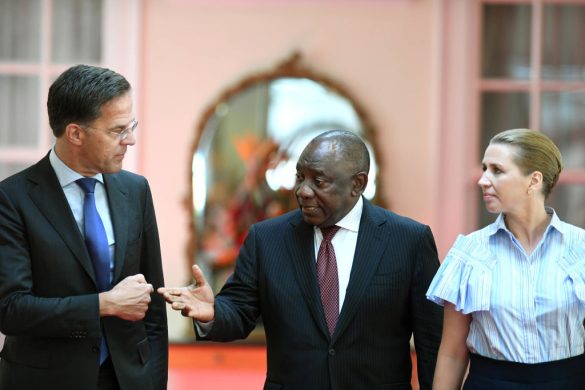En kvindegruppe i Jinja i Uganda indgav fælles ansøgninger til skøder på jorden for at undgå bestikkelse og arrangerede dialogmøder med lokalstyret- På den måde har de skabt større klarhed om processerne om jordrettigheder og inddrages i de lokale beslutninger, siger initiativtager.
Joyce Nangobi var ved at miste sit hjem, ligesom mange andre af beboerne i Jinja, da deres jord blev sat til salg og de ikke havde skøder på den. De manglede både dokumentation og viden om hvordan de skulle søge og blev mødt med krav om bestikkelse hos de lokale myndigheder.
Så organiserede kvinderne sig i Slum Women’s Initiative for Development (SWID) som har hjulpet 150 kvinder med at skaffe den rette dokumentation til at opnå skøder på deres jord.
FNs Udviklingsprogram (UNDP) skriver uddybende på sin hjemmeside onsdag:
A collective of women in Uganda affected by lack of land rights is working to mobilize community members, raising awareness of and monitoring corruption in the land titling process.
Thanks to the initiative, more than 150 women in Jinja have been able to submit proper documentation to receive legal land claims.
Since 2012, UNDP’s work on anti-corruption with the Huairou Commission (et globalt netværk af kvinde-græsrodsorganisationer) has mobilized more than 2,300 community members and trained over 500 people on social accountability strategies.
Korruption er vores værste modstander, siger Joyce
“The scenario really affecting us as women is corruption in the process of titling,” Joyce explains:
“We have gone through a number of offices, and then when we reached a level where we were applying for deed prints, one of the officers in the surveying department asked for money, for example 100,000 Ugandan shillings (roughly 37 US dollar) per person. He promised to bring the deed prints within two weeks, but as I speak now we have not received the deed prints.”
In response to these challenges, Joyce and other women formed the Slum Women’s Initiative for Development (SWID), a collective of local women affected by the lack of land rights.
SWID implements Transparency & Accountability Initiatives, which seek to improve service delivery and local governance processes through grassroots women’s mobilization, and by monitoring and raising awareness of corruption threats in the land titling processes.
In 2012, SWID participated in a UNDP and Huairou Commission joint study mapping out specific ways corruption impacts women’s everyday lives, as well as successful women-led anti-corruption strategies.
This work mobilized more than 2,300 community members and trained over 500 people on social accountability strategies in countries such as Brazil, Nepal, Nicaragua and the Philippines.
Kvinderne gik i fællesskab til myndighederne
Building on the findings of the study, in 2013 the UNDP global Programme on Anti-corruption and the Huairou Commission started working with SWID, providing seed funding and technical support for the Transparency & Accountability Initiative.
Joyce says local officials were initially suspicious of SWID’s agenda in the land sector at the beginning of the initiative. Joyce and the other members of SWID found themselves impeded not only by official corruption, but by lack of available information out how to claim land titles.
Through meetings with community members to explain the process, women in Jinja organized in groups to visit land offices at the local and district level, and submitted their documentation collectively to avoid paying a bribe.
As the benefits of SWID’s organizing became clear, suspicions began to fade away: land titles were not only a women’s issue, but one that was impacting the entire community.
“Before, the local government thought we were in conflict with them and wanted to take over their process,” Joyce said, adding:
“When we did our Local to Local Dialogue, we called the local government into workshops where the community members envisioned what they wanted for their community and shared their ideas with the local authorities. Today, we influence local decisions and they invite us to participate in planning and budget allocation.”
Mændene er også blevet interesserede
Through this initiative, 35 women have been able to receive land titles in less than 14 months, and 120 additional women have submitted the proper documentation to start the titling process. Men in the community have also begun to look to SWID as a resource.
Today because the community understands the process, official surveying of boundaries has increased, while land disputes between the community and local authorities have decreased significantly.
For 2014 and beyond, SWID with the support of the Huairou Commission and UNDP will work to expand the successes achieved in Jinja to other provinces in Uganda.
http://www.undp.org/content/undp/en/home/ourwork/womenempowerment/successstories/in-uganda–women-s-collectives-fight-for-land-rights-and-against.html














